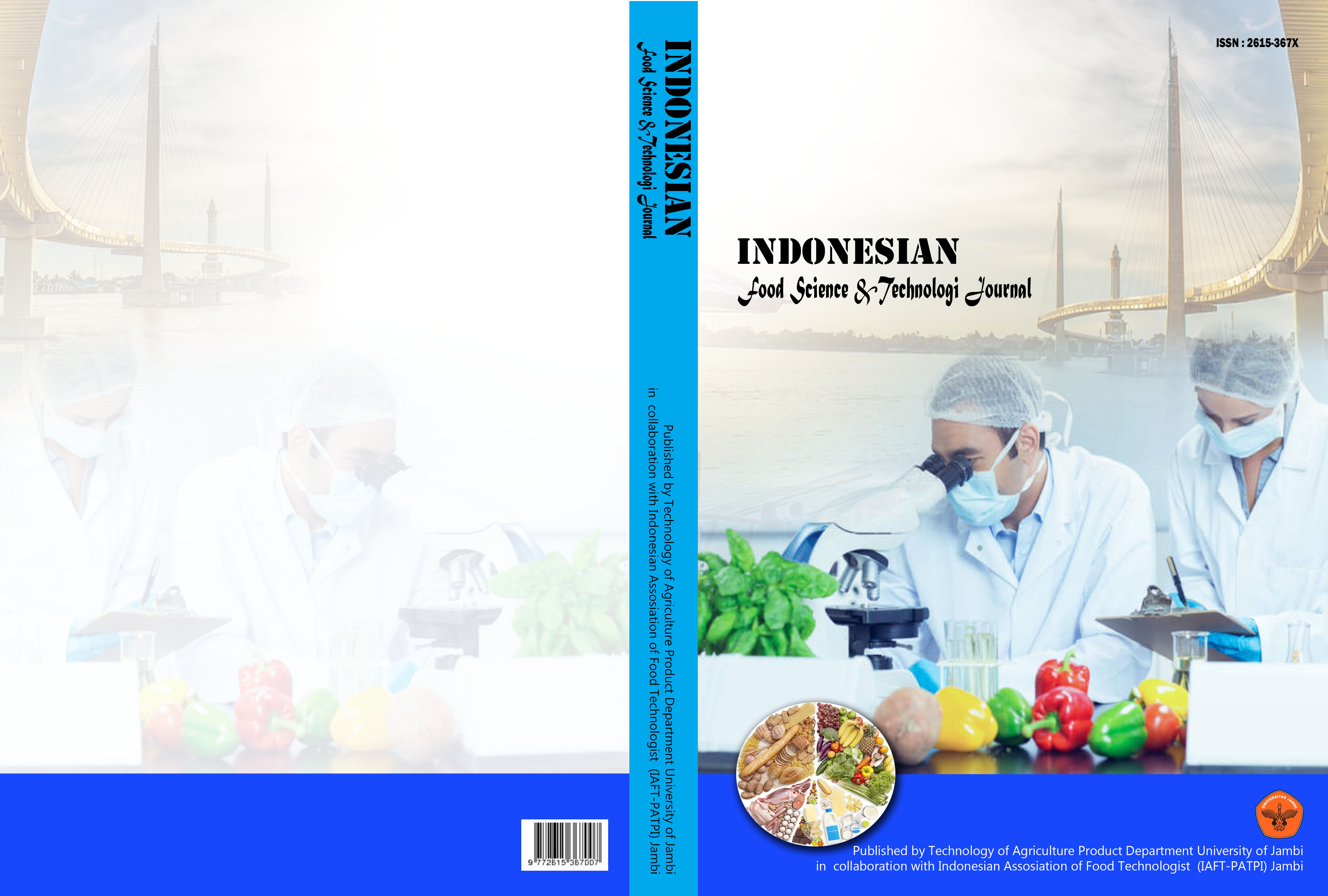Gadung Tuber (Dioscoreae Hispida Dennst) As Potential Source Of Staple Food Supporting Food Diversification
DOI:
https://doi.org/10.22437/ifstj.v1i1.4267Keywords:
Gadung tubers, food diversification, staple food, flour, snack.Abstract
Gadung tuber (Dioscoreae hispida Dennt), Indonesian called “umbi gadungâ€, is one of the potential sources of staple foods in supporting food diversification. Gadung tuber contains carbohydrateof 29.7g in every 100 g of material. It also contains 3.2 g of protein, vitamin C, vitamin B and other minerals. The purpose of this paper is to present how to eliminate dioscorine and cyanide acid and to process some food diversification of gadung tubers. The innovation technology of post-harvest handling to eliminate dioscorine and cyanide acid content can be done by immersing and washing them in salt water or blanching. Gadung tubers of 2 mm slice immersed in salt water of 8% and 7.5% decrease cyanide acid content of 5.45 ppm; while shreded gadung tubers immerse in salt water of 7.5% for 72 hours can reduce cyanide acid content of 18.75 ppm. Gadung tubers can be processed to be stapple food such as flour, flake. Flour of gadung tubers combined with wheat flour or starch can be processed to become snack food such as cake, sponge cakes. Research conclude that gadung tubers is safety forconsumption by immersing in salt solution of 7.5% to 8% for 72 hours to eliminate dioscorine and cyanide acid content. Combination of 60% and 50% of gadung flour can be used to make good cake and sponge cake.
Downloads
Downloads
Published
Versions
- 2018-05-17 (1)
- 2018-05-17 (1)









